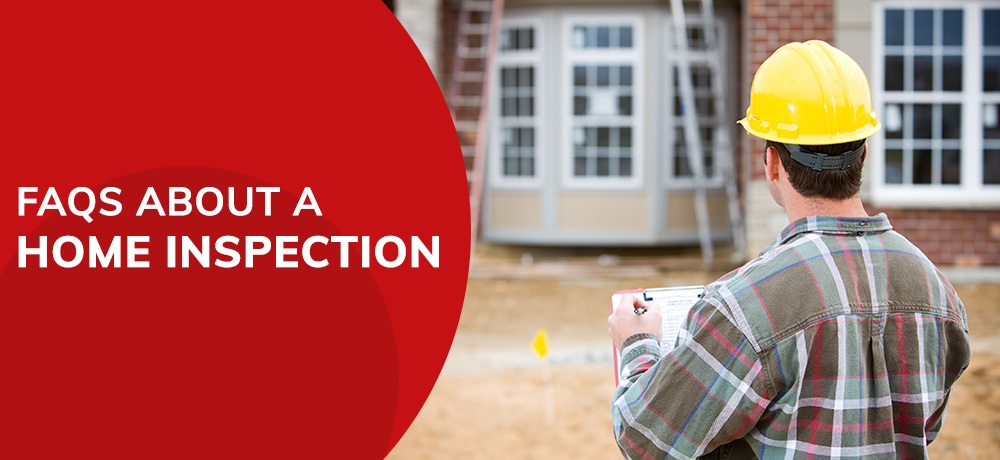Frequently Asked Questions About A Home Inspection

Whether you are a buyer or a seller, an accurate home inspection report will put you in a favorable position during major decision making. However, while trying to dig deeper, you may have a ton of questions about home inspections but find answers difficult to come by. To ensure you have all your doubts cleared and are armed with the most accurate information, CODE 3 Property Inspections, PLLC has answered some of the most frequently asked questions about home inspection.
1. What is a home inspection?
An inspection is a visual examination of the physical structure and systems of a building. If you are in the process of building a house, townhouse, condominium, etc., you should have it properly inspected before the final purchase by an experienced and impartial professional inspector.
2. What does an inspection include?
An inspection includes a visual examination of the building. During a standard inspection, the inspector evaluates and reports the condition of the foundation, grading/drainage, roof, roof structure, interior/exterior walls, ceiling, floors, doors, windows, fireplace/chimney, electrical systems, heating equipment, cooling equipment (temperature permitting), plumbing systems, water heating equipment, and built-in kitchen appliances. Only those items that are visible and accessible by normal means are included in the report.
3. Can a house fail an inspection?
No. A professional inspection is simply an examination of the current condition of your house. It is not an appraisal, which determines market value, or a municipal code inspection, which verifies local building code compliance. A professional inspector, therefore, will not pass or fail a house but will describe its current condition and report those items that are deficient.
4. Should I attend the inspection?
It is highly recommended that you attend the inspection. Attending the inspection will allow you to become more familiar with the home you are purchasing. Also, you can observe the inspector and ask questions while learning about the condition of the house.
5. Can I do the inspection myself?
Although you may be very handy, most home buyers and homeowners lack the knowledge and expertise of a professional inspector. Professional inspectors have extensive training regarding what is acceptable and what needs to be further evaluated in the property. A professional inspector is familiar with the critical elements of construction and with the proper installation, maintenance, and inter-relations of these elements. Above all, most buyers find it difficult to remain completely objective and unemotional about the home they are considering, and this may lead to a poor assessment.
6. What will an inspection cost?
The inspection fee for a typical single-family house varies geographically, as does the cost of housing. Likewise, within a geographic area, the inspection feed charged by different inspection services may vary depending upon a number of factors such as size of the house, age of the home, particular features of the house (slab foundation/crawl space foundation, etc.) and possible optional systems inspected (pool, water wells, septic system, etc.). Cost should not be the biggest factor in determining whether to have your home inspected. Although the fee paid may be considerable, other comparisons should be made to ensure you are obtaining the most comprehensive inspection for your dollar. You might save on the cost of the inspection if you ensure the seller performs repairs based on significant problems revealed by the inspector.
7. When do I call an inspector?
The best time to retain the inspector is immediately after the purchase contract has been signed. The TREC One-Four Family Residential Contract allows for the buyer to have the property inspected. A negotiated time period, referred to as the option, is when the inspection takes place. Any request for repairs has to be agreed upon and signed by all parties in the form of an amendment to the contract ON or BEFORE the expiration of the option period.
8. If the inspection report is favorable, did I really need an inspection?
Absolutely! Now you can complete your purchase with confidence about the condition of the property. You may have learned a few things about your home from the inspection report and will want to keep that information for future use. Above all, you can rest assured that you are making a well-informed purchase decision.
If you have any more questions about home inspection, get in touch with the professionals at CODE 3 Property Inspections, PLLC. As a leading home inspection service provider in Central Texas, we are committed to inspecting homes thoroughly so that our clients can make accurate decisions. We offer a complete range of home inspection services, including commercial inspection, buyer and seller inspections, annual home inspections, etc. To learn more about our services, please click here or contact us by clicking here.